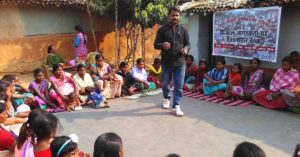How Mushroom Cultivation Is Changing the Fortunes of Women in Rural India
Chattisgarh's tribal communities, with limited job and economic opportunities, saw a significant chance when an organisation offered to train tribal women in starting a mushroom cultivation business. Jayashiree Elango explores further.
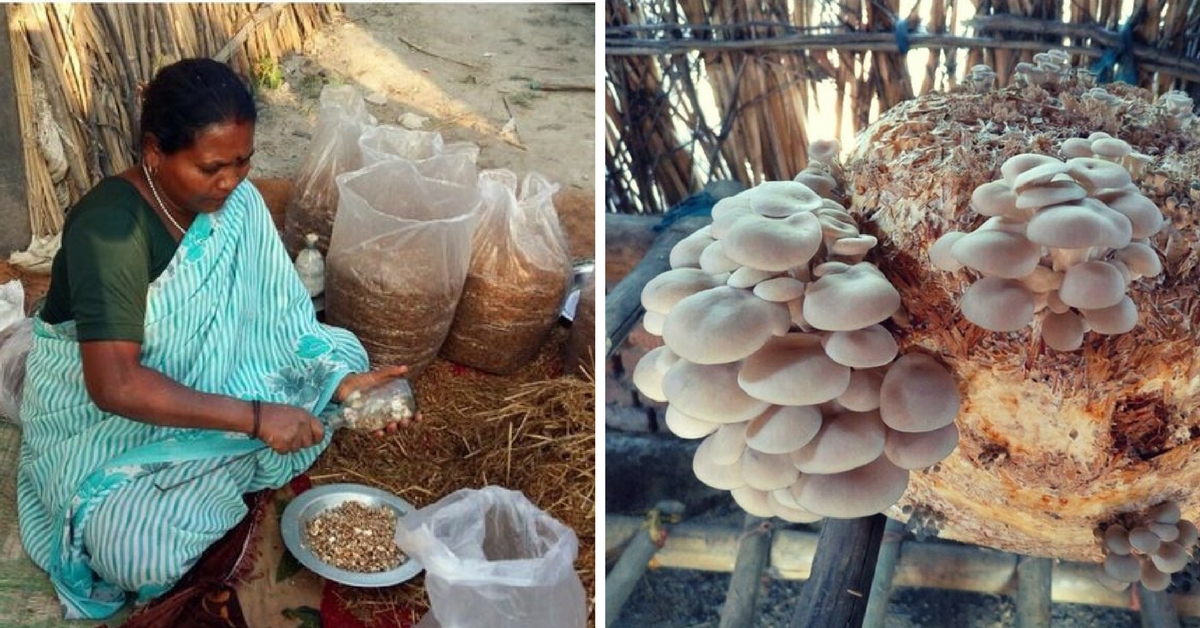
Jayashiree worked with this community as a part of the India Fellow programme, which is an 18-month experiential journey that helps young leaders understand social issues and bring change. Fellows work on high-impact projects, contribute with their skills, learn through workshops, and travel across the length and breadth of the country.
Korba, in Chhatisgarh, is the third-largest city in the state, and home to many tribes and indigenous communities. An organisation, Dhristee, works to empower women through self-help groups (SHGs) by setting up micro-enterprises. Amidst the many challenges that it faces in the process is making the women more comfortable in order to share their worries and come together to run an enterprise.
One of these micro-enterprises that turned out to be profitable was the cultivation of mushrooms — the edible and fruiting fungi. The systematic and scientific cultivation of mushrooms on a commercial scale was proposed to the women. This model, however, had already been tested and was a failure.
Members of Dhristee poked and prodded a little to understand the reason behind the failure. So, with the consent of the women, it was decided to organise a workshop to gain more knowledge on this subject.
A training session was then arranged at Jindal Institute in Tamnar in Raigarh, 70 km from the residences of these women. Some of the women were ready and excited to see a new place, and a few saw this as an opportunity.
One such entrepreneurial woman was Urmila Yadav, who was a member of the SHG Aradhana Swayam Sahayata Samuh, from Belgadi Basti in Korba.
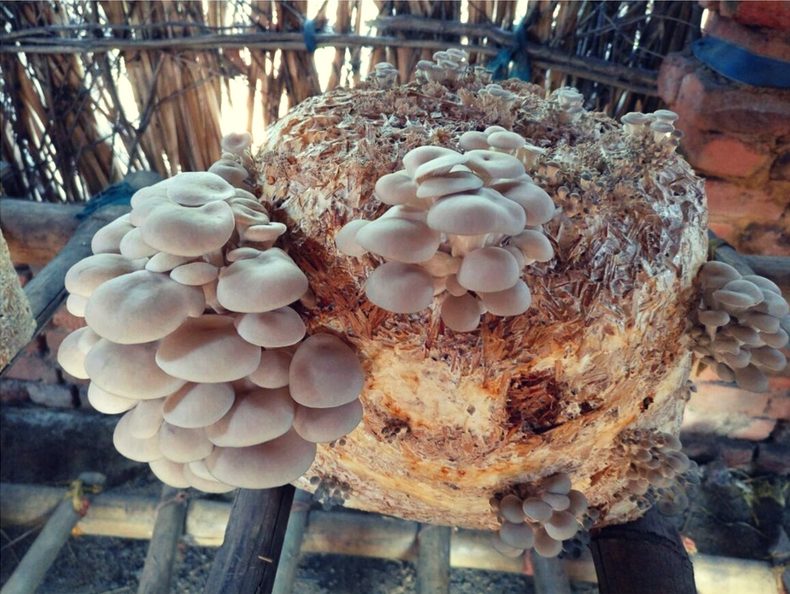
Urmila came for the workshop, leaving her home at 5 am and returning at 10 pm, and also persuaded another woman from her SHG to join her.
Mushrooms are available in different varieties — button, paddy, oyster, shiitake, milky, etc — some of which we can cultivate in India. Each of these varieties needs different settings to grow.
Temperature, humidity, and disinfection are all different factors which influence the process.
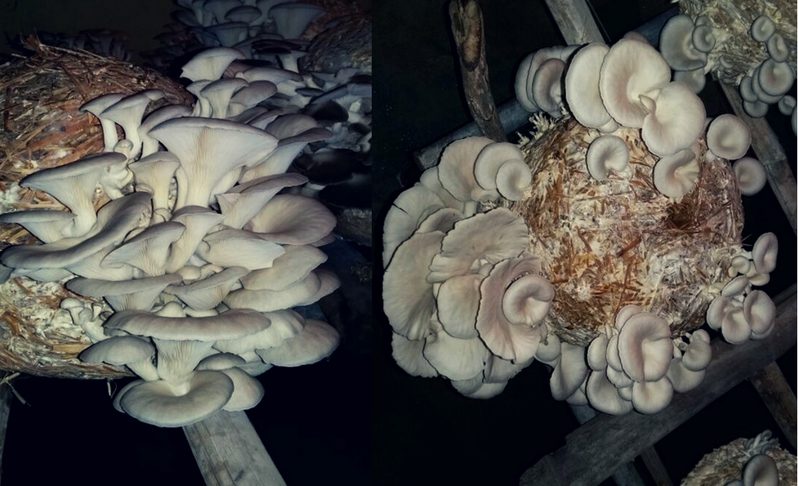
The spawns are available in bottles and have a certain maturing period. Once the spawns mature, they are not suitable for cultivation. So Dhristee taught the women to identify the maturity level of the seeds.
They layer wet straw bale mixed with disinfectants in a polythene bag, on which they sprinkle half-cooked wheat and seeds. They finally layer a bottle of spawns in a polythene bag. A maximum of four layers is advisable for high yield. The life cycle of a mushroom is anywhere between 16 to 23 days. The women keep the bags in the shade and sprinkle them with water at regular intervals.
A bag can yield up to 2.5 kg of mushrooms and a kg sells for anywhere between Rs 160 and Rs 200.
Dhristee also taught the women the idea of fixed costs, managing labour, and coming up with a break-even analysis for the process. The model considers anything other than the raw material cost as profit.
But the tricky part of working in a tribal belt is ensuring that the women know which types of fungi are edible and not poisonous, as there are many myths surrounding the various varieties of mushrooms in the region.
Back to our friend Urmila Yadav. After attending the training that day, she got in touch with the concerned trainer directly to start her new business.
Explaining the process of this enterprise to the other women, she convinced them to help her market it in their circles as well.
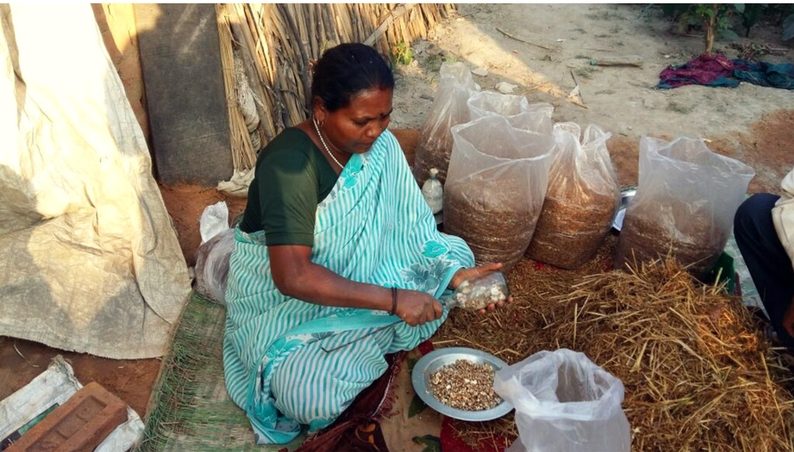
She got back to the Dhristee team once to arrange a hoarding in front of her house to promote her group and their newest venture. When the team asked her how she had managed to do all of this, she said simply, “We are responsible for our own lives.”
Clearly, Urmila has been responsible for starting her own enterprise, and teaching it to the women of her group.
Recently, representatives of another SHG, Ganesh Mahila Swayam Sahayata Samuh, Bhadrapara, came to meet the women of Aradhana Swayam Sahayata Samuh to learn the mushroom cultivation practice from them, so they could also start the enterprise for themselves.
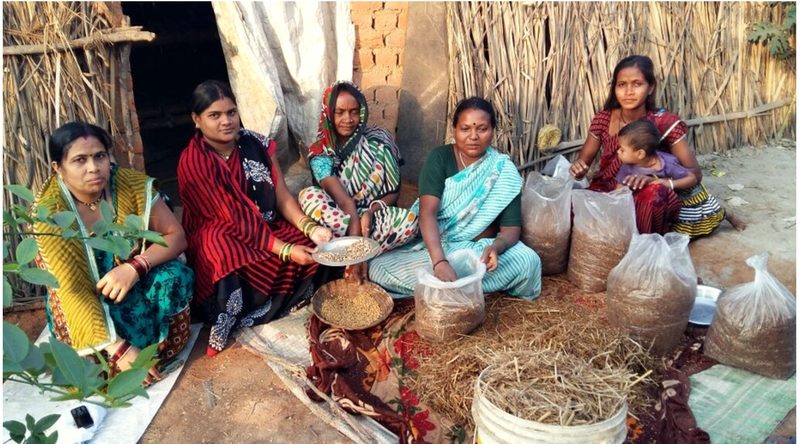
The first time I went to go work for women empowerment, I thought, “Well that’s not a big deal.” Today, I know exactly how tough it is, and the time and patience it needs. Each day I laugh and live with these women, trying to get to know them, while they try to understand me.
(The author works with the women of Korba to aid them with ideas for business and strengthening their SHGs as a part of the organisation Dhristee. She is also an India Fellow of the batch of 2016-17.)
For more information on Dhristee and the work they do, click here. Find out more about the India Fellow Social Leadership Program here.
Like this story? Or have something to share? Write to us: [email protected], or connect with us on Facebook and Twitter.
NEW: Click here to get positive news on WhatsApp!
This story made me
-
97
-
121
-
89
-
167
Tell Us More
We bring stories straight from the heart of India, to inspire millions and create a wave of impact. Our positive movement is growing bigger everyday, and we would love for you to join it.
Please contribute whatever you can, every little penny helps our team in bringing you more stories that support dreams and spread hope.








